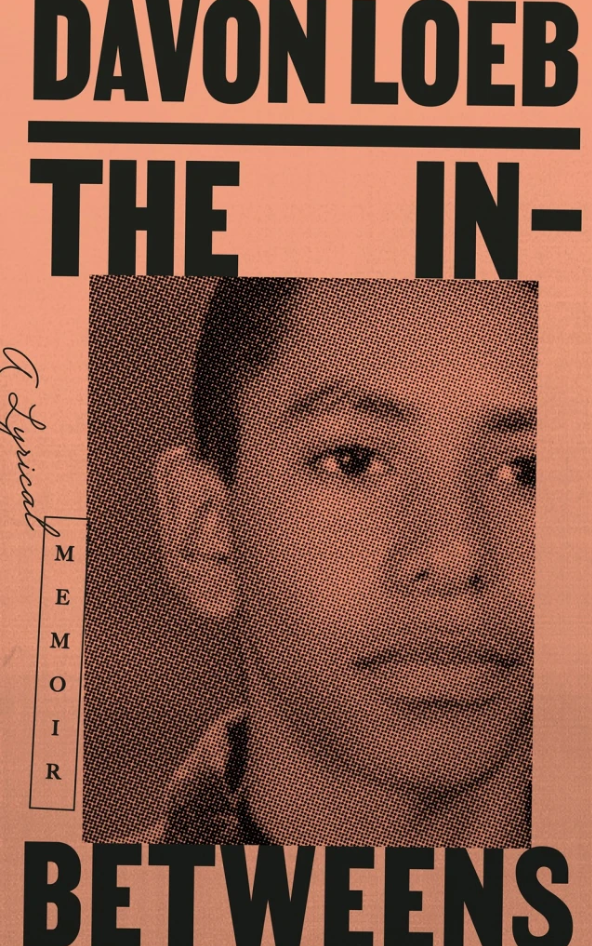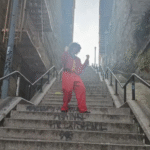by Caroline Beer

In his debut novel, The In-Betweens: A Lyrical Memoir, writer Davon Loeb details the struggles of growing up in America, not only as a man, but as a biracial man. The In-Betweens is a state that exists throughout the narrative, a constant back and forth state of between. Uncertainty lurks between the pages of the narrative, as Loeb looks back on his past and the moments that allowed him to eventually find belonging in this state of in-between.
The beginning of the narrative exists in a childlike state of in-between, especially in between reality and fiction. The memoir opens with a narrative detailing Loeb’s parents getting together, something Loeb had to piece together through various stories from his parents. Opening with a vignette that Loeb was not there for really sets the stage for the rest of the book, for the importance of other figures within the narrative of Loeb’s life. As he says on page 135, “this was about exploring and creating, about making our own by the taking, the pirating of life, whenever we could, with whatever we could.”
The vignette where the blur between reality and fiction is exemplified is “Don’t open the door”, where it is completely unclear what is real and what is imagined. This vignette truly details this childlike state of in-between, the state of everything and nothing being true. A place where your imagination can create reality, where Loeb’s fears about his landlady become real to him, and what “actually happened” does not matter. In this way, Loeb finds a way to connect to that universal childhood experience of unraveling reality.
A big uncertainty for Loeb is family. He has a different father than his siblings, and not only a different father, but a white and Jewish father. This creates a further separation between him and his family. In the vignette “Alabama Fire Ants” this juxtaposition is really exemplified with the game Loeb plays with his cousins and siblings. He is trapped in the middle of a game of keep-away, constantly trying to catch the ball that his family is keeping just out of reach. This vignette culminates when Loeb does finally catch the ball, and the game ends. He does not feel the acceptance he thought he might from this victory and is still faced with this state of not being where or who he wants to be.
In the vignette “For my Brother” Loeb looks back on this disconnect between him and his father, and also, with his half-brother, Alex. This vignette is a sharp contrast to “With my Dad”, a vignette all about what Loeb wishes his relationship with his father could have been. The love and care that he could have felt from his father, which ends with a crushing, “And while none of this is true, these are some of the things I wish we did.” On the other hand, “For my Brother” details what life was actually like with Loeb’s father and brother. The childish desire to be just like his older brother, that eventually turns to fear. The knowledge that their father will pay $1,000 for Alex to publish a poetry collection but will not pay the same for Loeb to publish his own poetry collection is something that sticks with Loeb, that further adds to this feeling of in between, of not belonging.
Embracing the uncertainty of life and what will happen and where he will end up is where Loeb finally finds peace. The narrative follows Loeb on this journey, as he finds this peace and allows himself to embrace this uncertainty.
Caroline Beer is a writer.



Add your first comment to this post